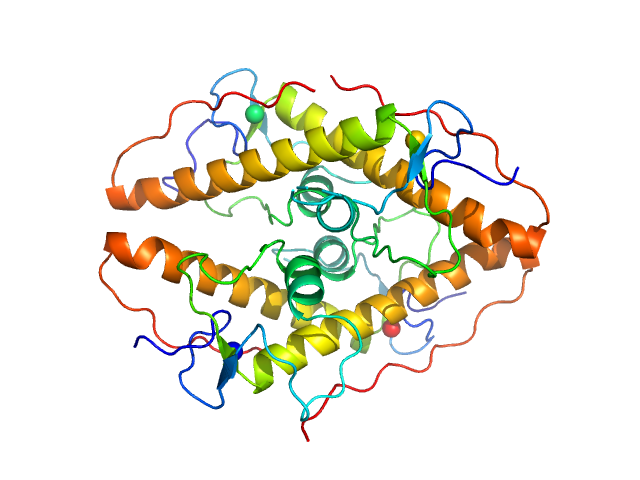|
Synchrotron SAXS data from solutions of tetrameric zinc-finger associated domain of Drosophila Pita protein in 20 mM Tris, 100 mM NaCl, 5 mM DTT, pH 7.4 were collected on the BM29 beam line at the ESRF (Grenoble, France) using a Pilatus 1M detector at a wavelength of λ = 0.1 nm (I(s) vs s, where s = 4πsinθ/λ, and 2θ is the scattering angle). One solute concentration of 1.70 mg/ml was measured at 10.3°C. 30 successive frames were collected. The data were normalized to the intensity of the transmitted beam and radially averaged; the scattering of the solvent-blank was subtracted.
Sample detector distance = UNKNOWN. X-ray Exposure time = UNKNOWN
|
|
 s, nm-1
s, nm-1
